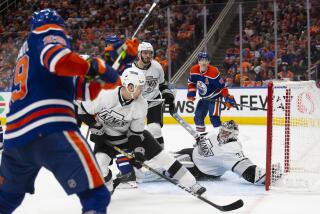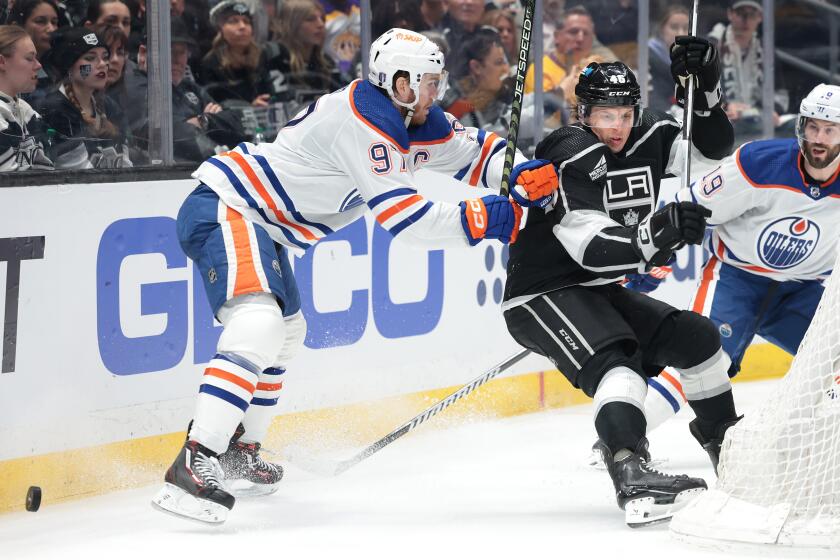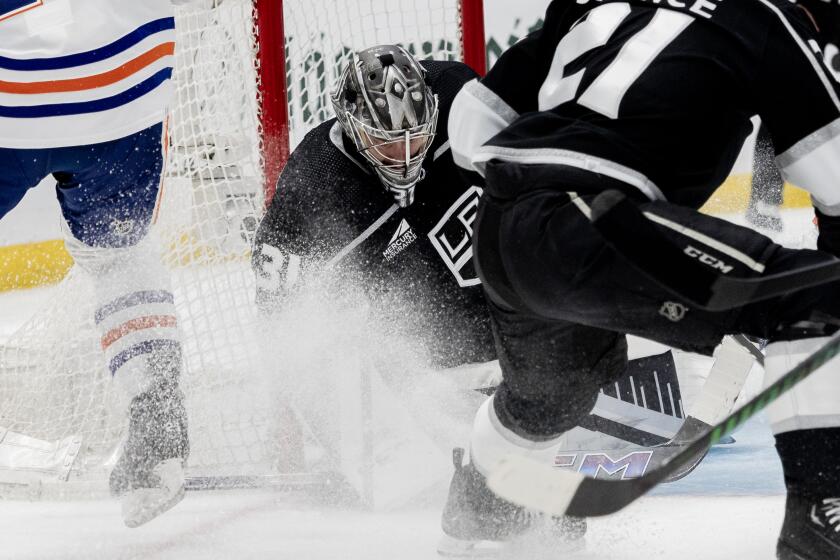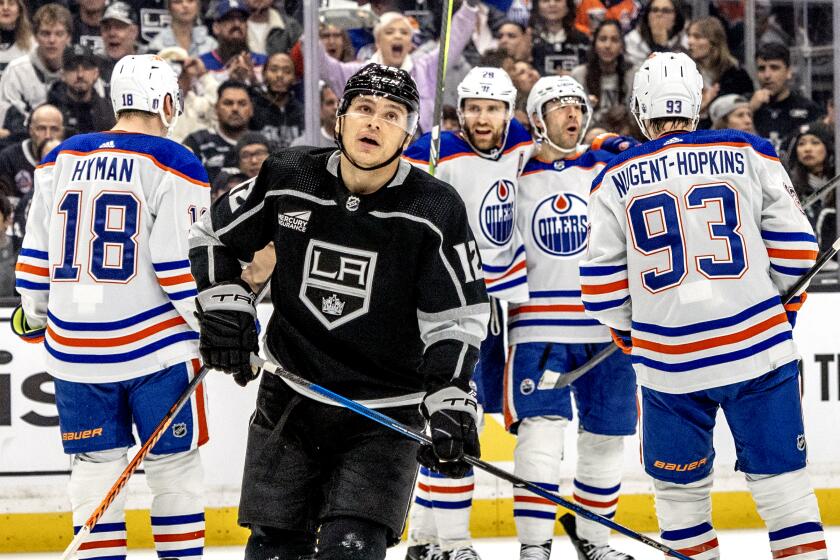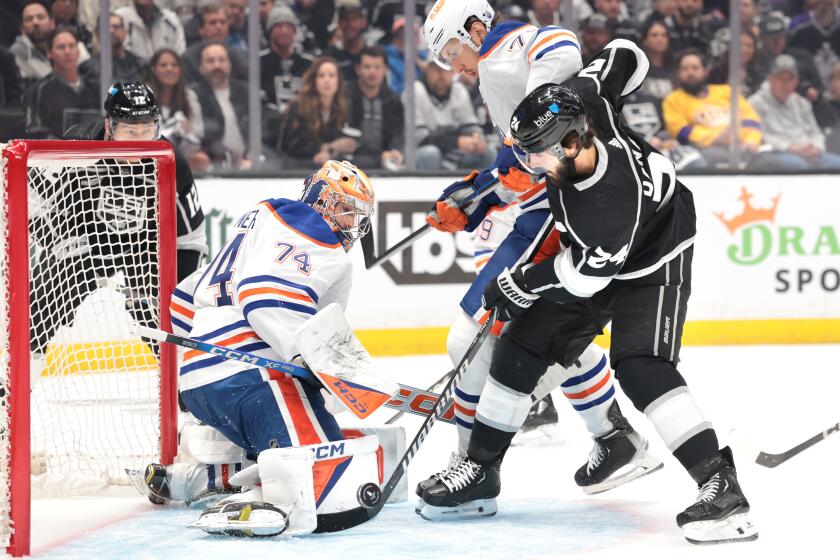NHL Tells of Good Finances
Higher television revenue, booming attendance and “business fundamentals” related to a new labor deal will boost an estimated 22 of the NHL’s 30 clubs to break-even or profitable status this season, Commissioner Gary Bettman said Monday, signs that the league is recovering from the labor dispute that wiped out the 2004-05 season.
“The collective bargaining agreement is working well,” said Bettman, who planned to attend the Mighty Ducks’ playoff game against the Calgary Flames tonight at the Arrowhead Pond.
“People had suggested and speculated that the league was damaged beyond repair. That is not the case.”
Final numbers will be compiled after the playoffs, which generate significant amounts of revenue. A league-commissioned financial review issued in February 2004 had said that 19 teams lost a total of $342 million in the 2002-03 season and that 11 teams made money, leaving cumulative losses at $272 million.
The old labor deal expired in September 2004. It was replaced last summer by a salary cap-based system that guarantees players 54% of revenue.
Bettman said the revenue is coming from “traditional sources” such as local and national TV and licensing and said growth potential lies in marketing and promotional efforts and international ventures. Although Duck General Manager Brian Burke said last week that his club might lose $15 million this season, Bettman said he believes the Ducks will reverse that.
“The fact that they’re still losing money is something they will overcome,” he said. “The fact that they’re losing less [than in past years] means they’re trending in the right direction. As revenue generation from other sources continues to improve, they’ll work their way forward.”
The Ducks have said they lost about $12 million in 2002-03, the season they advanced to the Stanley Cup finals, and about $28 million the following season.
Bettman also said he was not perturbed by ratings released Monday that showed NBC’s playoff telecasts Saturday earned a combined 1.3 rating and 3 share, down from 1.6/4 on ABC in 2004. “The total eyeballs were up,” he said, calling the numbers “OK.... We also changed where we are. People who think we can fix the TV issue overnight are unrealistic. We like the treatment we’re getting.”
Ratings on OLN, in its first year of a three-year, $207.5-million deal as the league’s cable outlet, were also low, averaging 0.2 for regular-season games, but Bettman said he believes the network intends to expand its reach beyond its current 63.4 million homes. OLN on Monday announced it will change its name to Versus.
The league and OLN can each opt out after next season, but Bettman said he’s not currently inclined to do so. “We’re not having any thoughts other than continuing to work with them,” he said. “They’ve been good partners.... Pure hockey for six hours is the type of treatment we want our fans to see.”
Regarding the playoffs, Bettman said he has seen “no variance” from the new officiating standard that minimized obstruction and enhanced the flow of games. He also said there’s a rationale for allowing clubs to be vague about players’ injuries, such as the Ducks’ description of goaltender Jean-Sebastien Giguere’s apparent leg problem as a lower-body injury. It might be irksome to the media, he said, but it’s not an issue for fans and it helps protect players.
“If you disclose the exact nature of a player’s injury, you might put him at greater risk, and I’m not sure that’s what our fans would want,” he said. “If a club says a player will be out a week and he’s out for two, that’s a bigger issue to me.”
More to Read
Go beyond the scoreboard
Get the latest on L.A.'s teams in the daily Sports Report newsletter.
You may occasionally receive promotional content from the Los Angeles Times.

